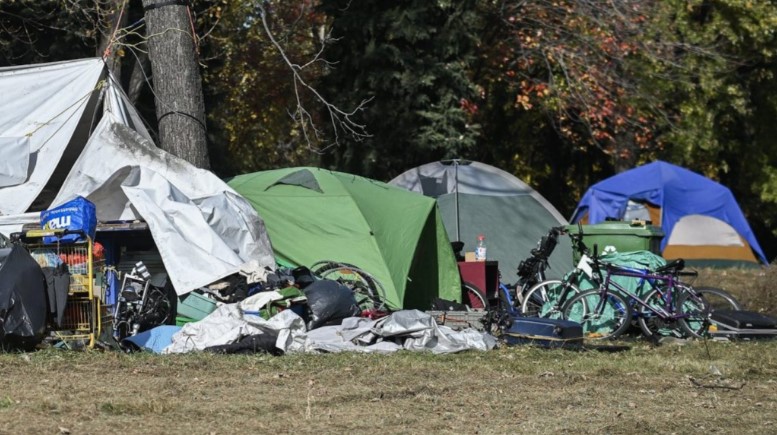
Organizations like the Ottawa Mission have expressed concern on theoverburden on the shelter system, particularly in the bitter cold of winter. But despite the City of Ottawa stating that adequate space is available to provide shelter, many are choosing to not access these services.
In 2024, the city saw an all-time high of 350 individuals living unsheltered at one time.
The City of Ottawa’s 10-Year Housing and Homelessness Plan 2020-2030 outlines short, medium and long-term objectives for supporting people who are unsheltered, while recognizing why some people may choose to not seek shelter.
“The City’s response to unsheltered homelessness and encampments is accompanied by services and wraparound supports that address mental health and substance use challenges as well as housing needs,” a memo from Kale Brown, interim director of housing and homelessness services at the city, said.
To support these initiatives, in December, the city applied for funding through the federal Unsheltered Homelessness and Encampments Initiative (UHEI). The application required the city to explain how the funding will be used to support individuals in encampments through a human rights-based approach.
On Jan. 22, the federal government announced that Ottawa would receive a total of $10.5 million through the 2024-25 and 2025-26 fiscal years. The funding plan focuses on creating additional capacity for low barrier drop-in services while remaining committed to addressing the growing demand for shelter and housing services.
“As the timelines for the UHEI funding application were short, staff plan to review the application with sector partners to develop an implementation plan. Further
updates on implementation of the UHEI funding will be provided in the Integrated Transitions to Housing Strategy report due to be presented to Community
Services Committee for consideration in February,” the memo states.
In 2025 staff will also be updating the city’s 10-Year Housing and Homelessness Plan which will be presented to Council in 2026.